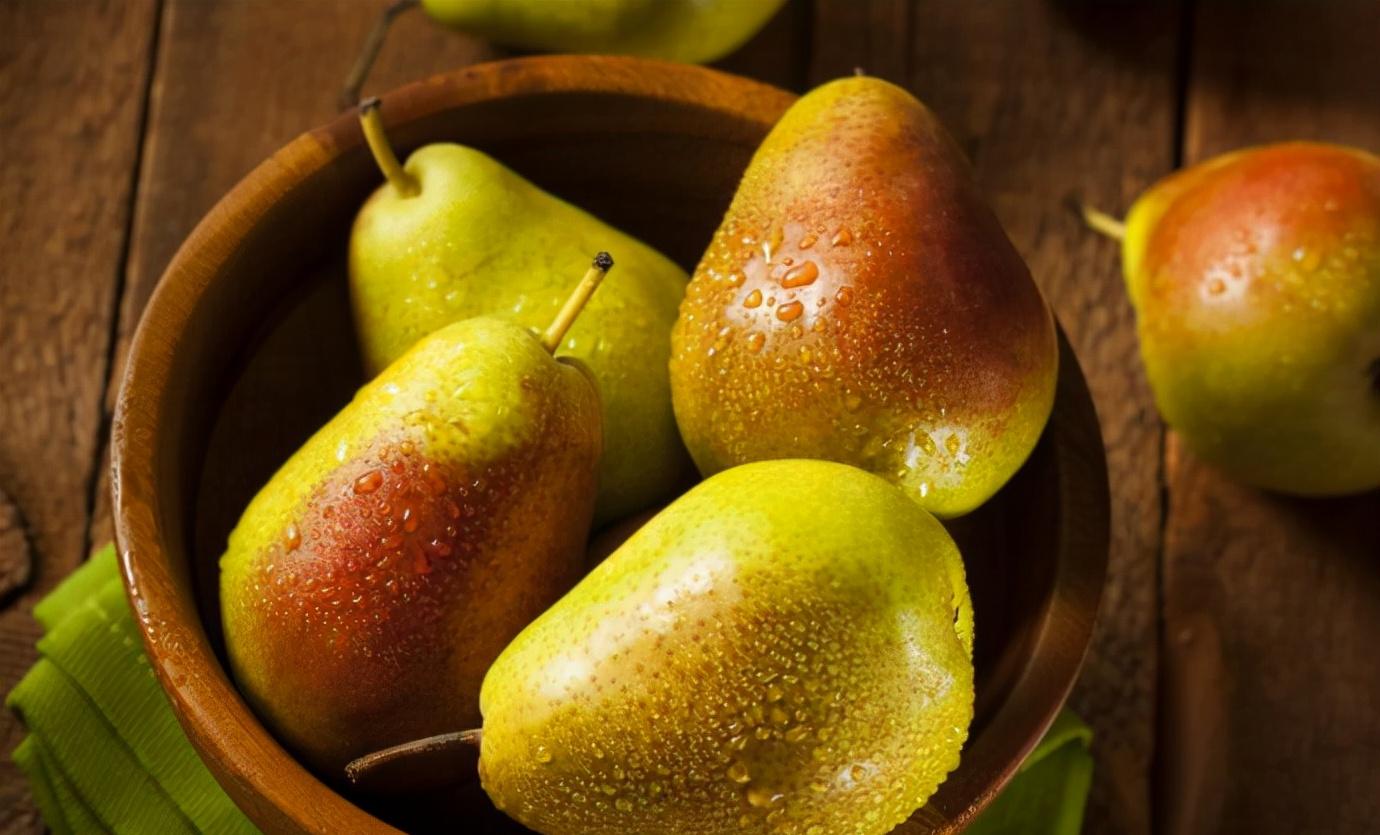As soon as autumn arrives, the pears at home are arranged!
Boiling pear soup, stewed Sydney pear silver ear soup, boiling pear porridge, the elders always have ten thousand ways for you to eat pears.
Why you are so persistent, not only delicious, but also inseparable from its nutrition.
First, can eating pears stop coughing and moisturizing the lungs?
Excuse me! Pears are not as powerful as you think!

At present, pears have not been found to contain cough and lung-moisturizing ingredients.
Many people are very comfortable in their throats after eating pears, mainly because there is more moisture in the pears (on average, 85.9%)[1].
Pears also contain more fructose (4.5%) and sorbitol (2.5%)[2], which absorb water quickly and then release it slowly, leaving the digestive tract mucosa moist for longer.
For these two reasons, dry cough is relieved.
But if you want to cure your cough, don't expect to eat pears, but see a doctor.
Second, what are the real benefits of eating pears?
Although there are many varieties of pears, such as Sydney pear, early crisp pear, Korla pear, etc., their nutritional similarities, common advantages are:
1. More moisture.
Averages 85.9%[1], suitable for hydration in autumn and winter.
2. More fiber.
Dietary fiber in pears is predominantly insoluble (7.1%)[2] with an average of 2.6%[1], while the content of dietary fiber in soft pears (9.1%) and Korla pears (6.7%) is higher [3].
Dietary fiber can promote intestinal peristalsis, help prevent and relieve constipation, and help control blood sugar and blood lipids.
3. Low GI (blood glucose production index).
Pear has a GI value of 36[1], which is a fruit with a relatively low sugar content. If the condition is stable, diabetics can eat half a pear at a time.
4. Many antioxidants.
Pears contain a variety of polyphenols such as arbutin, catechins, chlorogenic acid, quercetin [2], which have certain advantages in antioxidant and anti-inflammatory.
3. Are pears harmful to the body?
It is often said that eating too many pears can cause diarrhea.
In fact, normal people don't have to worry about this.
Pears are rich in dietary fiber, fructose, and sorbitol[3], which promote intestinal motility. For a normal stomach, bowel movements are smoother.
However, if your stomach is sensitive, it is best to eat fewer pears (or cook them), otherwise you may have diarrhea.
4. What kind of pear is better to buy?
Old people often say that the mother pear is delicious. Does it make sense?
This sentence is a rumor.
In fact, biologically speaking, fruits are neither male nor female.
However, the bottom of the pear does have two different shapes [4]. First, during the process of pear fruit development and maturity, the calyx falls off normally, and the bottom of the pear is concave, commonly known as "mother pear".
The other is the calyx that remains (does not fall off), and the ass of the pear is raised, commonly known as the "male pear".
But usually calyx shedding has little to do with nutrition, and male and female pears are not said to be good or who is bad.
But there is one pear that was unexpected–korla pears, "female" pears are indeed sweeter than "male" pears (higher in sucrose and total sugar), and less hard residue (lower in stone cells) [5].
In short, if you want to buy a good pear, just choose your favorite flavor through regular purchase channels.
Happiness is the most important thing!
What are you waiting for? Let's go eat pears!
bibliography
Yang Yuexin. Chinese Food Ingredient List Standard Edition, 6th Edition, Vol. 1[M].Beijing:Peking University Medical Press,2018.
[2] Reiland H , Slavin J . Systematic Review of Pears and Health[J]. Nutrition Today, 2015, 50(6):301-305.
Yang Yuexin Ge Keyou. The Complete Book of Chinese Nutrition Science, 2nd Edition (Volume 1)[M].Beijing:People's Medical Publishing House,2019:459.]
Gang Minghui. Study on the control technology of Calyx fruit and coarse peel fruit of Korla fragrant pear[D].Xinjiang Agricultural University,2010.
Yushan Kurban. Study on the occurrence mechanism and prevention technology of Calyx fruit and coarse peel fruit of Korla fragrant pear[D].Xinjiang Agricultural University, 2012.